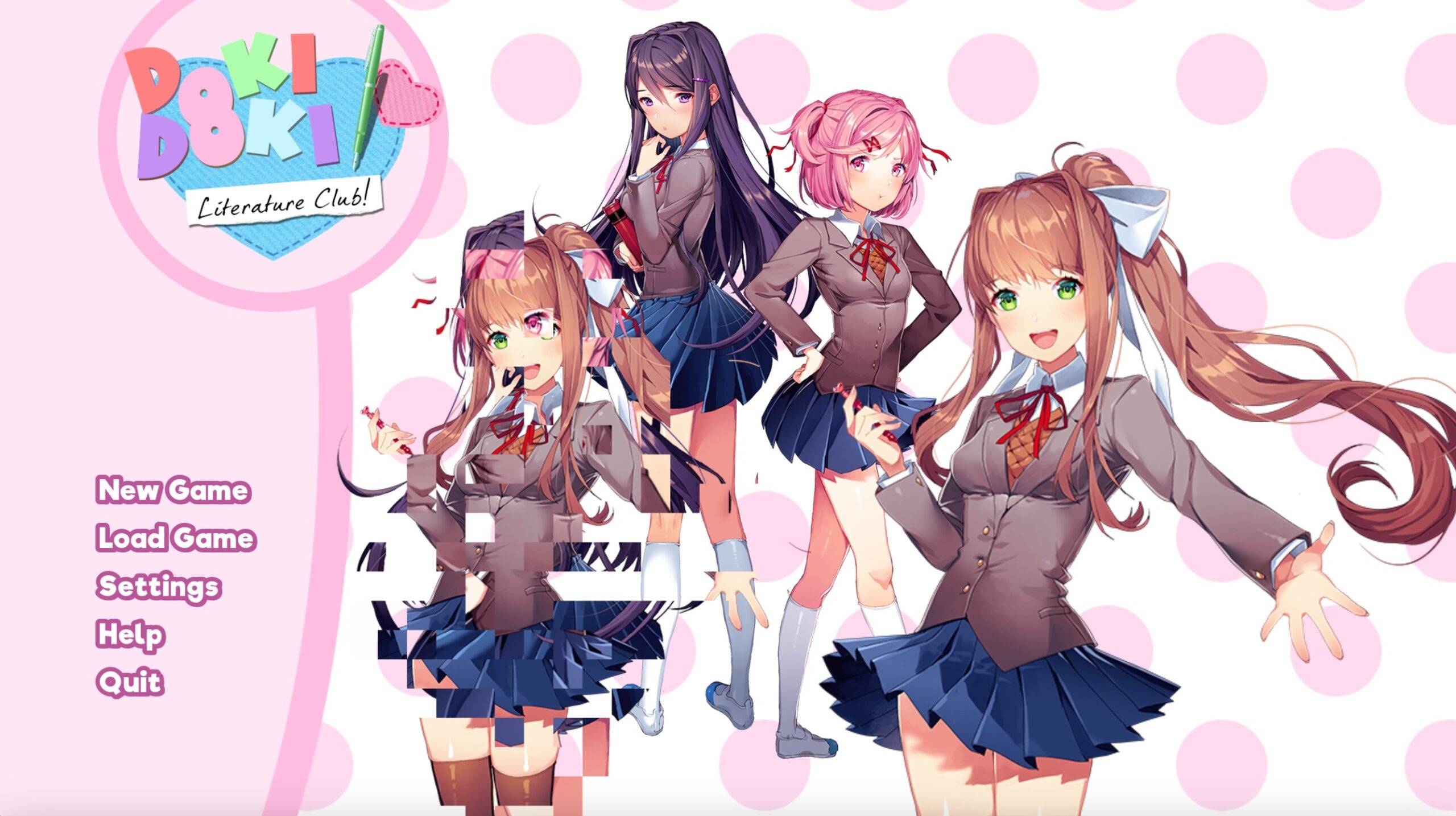Doki Doki Literature Club is a visual novel game developed by the game studio Team Salvato. The game is marketed towards gamers that enjoy horror or that are familiar with dating sims, and is available for Linux, Mac, and Windows. To go beyond the genre of Dating Sims, Doki Doki Literature Club “tricks” players into thinking their game is a dating sim, but the game slowly transforms into a horror game as the player moves through it. In general, the game follows the player’s character as he joins a literature club at school with four girls who are already members. Although it is parodying the Dating Sim genre, the game’s portrayal of its female characters is shallow, insensitive, and not aligning with feminist narratives. Utilizing a feminist perspective when designing Doki Doki Literature Club would have helped to develop a more compelling initial narrative within the game, but would complicate the game’s use of the traditional “Dating Sim” as a narrative element.
The mechanics of the game are simple to begin. The player clicks through text that is either the dialog between characters, or internal dialogue of the player’s character. The player has the opportunity to choose a specific girl to pursue by creating poems out of selected words that reflect the style and personality of each girl. These mechanics frame the game as a narrative, and allow the player to experience the game as narrative and escape. However, the game slowly becomes dark as the characters commit suicide for various reasons (often surrounding the player’s characters), and the game becomes corrupted by one of the character’s, Monika. For example, after Sayori commits suicide, some of the game’s text and visuals begins to glitch. See an image of Sayori’s glitched character below. The mechanics of the game become related to manipulating the physical game on the player’s computer. Here, the fun comes from how to defeat Monika. Even though the all four girls are more complex than their initial Dating Sim portrayal, they are still portrayed as shallow, with all of their mental health struggles relating to their love for the player’s character. They are treated as narrative elements rather than real people. In the reading, the author explains that games should not “replicate hierarchies of the past.” Doki Doki Literature Club definitely replicates hierarchies of women as driven solely by desire for men, regardless of if it is done for irony or parody.

Admittedly, this makes playing the game like a feminist difficult. Personally, I went into the game knowing there was some horror element later on, so the beginning of the game, which establishes the game as a Dating Sim, felt incredibly slow. I attempted to take a feminist perspective by shifting my understanding to treat the four girls as complex women with struggles of their own, rather than prospects for my male character. This ended up being challenging because almost all of the girls’ struggles were driven by my character’s relationship with them. This one-dimensional portrayal made the game less engaging. In some ways, I understand that this in itself was an element of the game: it is supposed to initially seem like a traditional Dating Sim, but this lack of character was a missed opportunity to create more narrative within the game.
In this way, the game does not intertwine feminist theories well. It appeals to a single audience of gamers that know the genre of Dating Sims, and even makes the player take on a male perspective within the game. This week’s reading explains that games that appeal to a single audience miss opportunities for innovation of play. This game is definitely innovative in its shift in game goals, but adding a feminist perspective by giving the female characters more depth would have improved gameplay. As an example, I am not in the intended audience of the game (as a woman who does not play Dating Sims), and I was not engaged. I would have not committed to continuing to play the game after the initial scenes if it weren’t for class.
The issue of adding feminist perspective to this game is a complex one because the game is parodying a game genre that already lacks feminism. However, utilizing the feminist theory by letting players bring in more identity (e.g. letting them choose a gender) and giving characters more depth and personality beyond their relation to the player’s character would help to engage a broader range of players and develop a more complex narrative.



